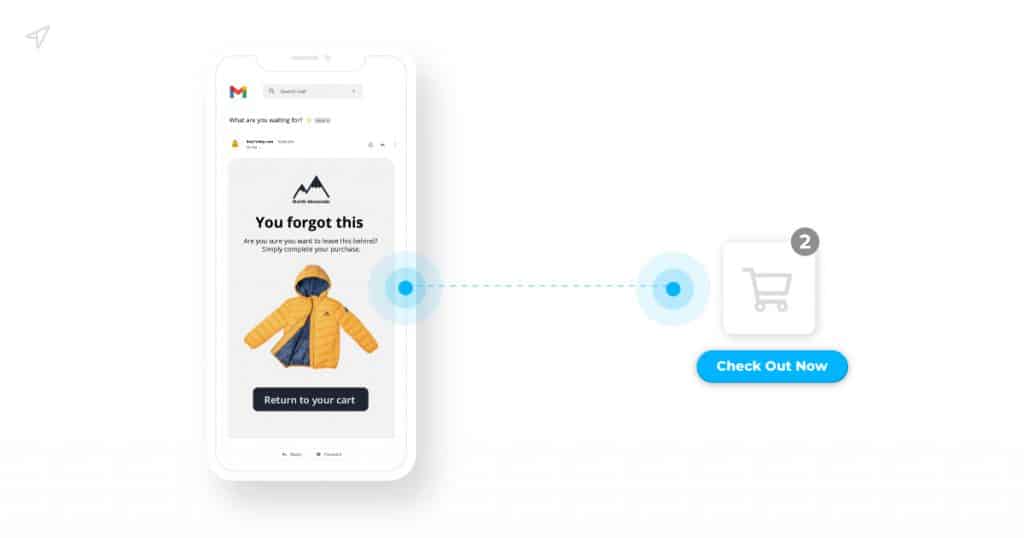Introduction
In the ever-evolving world of digital commerce, an effective eCommerce email marketing strategy stands as a cornerstone for success. Not only does it offer a direct line of communication with customers, but it also fosters long-lasting relationships and drives sales. The benefits of email marketing in the realm of eCommerce cannot be overstated, as it combines personalization with cost-effectiveness, making it a powerful tool in any marketer’s arsenal.
Understanding the dynamics of email marketing is crucial in leveraging its full potential. This includes not only recognizing its strengths but also understanding how to integrate it seamlessly into your broader eCommerce strategy. In this blog post, we delve into the nuances of crafting and executing a successful eCommerce email marketing strategy, highlighting its benefits and providing actionable insights for eCommerce businesses.
Integrating Email Marketing with eCommerce Strategies
Integrating email marketing seamlessly into your broader eCommerce strategy involves recognizing its strengths and crafting tailored campaigns. This post provides insights into creating a successful eCommerce email marketing strategy.
The Foundation of a Strong eCommerce Email Marketing Strategy
Understanding Audience Segmentation and Goals
To set the stage for a successful eCommerce email marketing strategy, it’s essential to understand the foundational elements that contribute to its effectiveness. Firstly, segmenting your audience based on their interests, purchase history, and behavior is critical. This allows for tailored messages that resonate with each segment, enhancing engagement and conversion rates. Additionally, setting clear goals and KPIs is vital in measuring the success and ROI of your campaigns.
Design and Content: Keys to Effective Emails
The second aspect of laying a strong foundation involves the design and content of your emails. The content should be engaging, relevant, and add value to your customer’s experience. This can be achieved through personalized recommendations, special offers, or insightful content related to your products. Meanwhile, the design should be visually appealing and mobile-friendly, ensuring a seamless experience across all devices.

Maximizing Email Marketing Benefits in eCommerce
Building and Nurturing Customer Relationships
One of the key email marketing benefits in eCommerce is the ability to build and nurture customer relationships. Through regular and personalized communication, you establish trust and loyalty, turning one-time buyers into repeat customers. Tailored email campaigns that acknowledge customer preferences and past interactions can significantly enhance this relationship-building process.
Driving Targeted Traffic and Boosting Engagement
Another significant benefit lies in the ability to drive targeted traffic to your website. By utilizing well-crafted calls-to-action and linking directly to product pages or special offers, you can effectively guide your subscribers to your online store. This not only increases the chances of conversion but also boosts overall website engagement, contributing positively to your site’s SEO performance.
Refining Your Strategy with A/B Testing
The Importance of A/B Testing in Email Marketing
A/B testing different aspects of your emails helps identify what resonates with your audience, ensuring your campaigns remain effective and relevant.
Keeping Up with Trends and Technologies
Staying updated with the latest trends and technologies in email marketing, like new platforms and interactive elements, is essential for a cohesive strategy.
Enhancing Customer Engagement with eCommerce Email Marketing
Utilizing Automation and Personalization
Engaging customers through eCommerce email marketing requires a strategic approach. First, consider the use of automation tools to send triggered emails based on customer actions, such as cart abandonment or browsing history. These automated emails can be highly effective in recapturing lost sales and keeping your brand top of mind.
Creating Compelling and Relevant Email Content
Secondly, personalization plays a pivotal role in engaging customers. By using data-driven insights to customize email content, you can create more relevant and compelling experiences for your subscribers. This might include personalized product recommendations, birthday discounts, or exclusive previews of new collections, all of which can significantly increase customer engagement and loyalty.
Leveraging Data for Strategic Decisions
In the realm of eCommerce email marketing strategy, data is king. Utilizing analytics to track open rates, click-through rates, conversion rates, and other relevant metrics allows you to gauge the effectiveness of your campaigns. This data not only helps in fine-tuning your current strategy but also provides valuable insights for future campaigns.

The Role of A/B Testing in Refining Your Strategy
The Importance of A/B Testing in Email Marketing
A/B testing is a crucial element in honing your eCommerce email marketing strategy. By testing different aspects of your emails, such as subject lines, email layouts, or call-to-action buttons, you can identify what resonates best with your audience. This ongoing process of testing and optimization ensures that your email campaigns remain effective and relevant.
Keeping Up with Trends and Technologies
In addition to testing, it’s important to stay updated with the latest email marketing trends and technologies. This might include exploring new email marketing platforms, experimenting with interactive email elements, or integrating your email campaigns with other marketing channels for a cohesive strategy.
Overcoming Challenges in eCommerce Email Marketing
While the benefits of email marketing in eCommerce are plentiful, there are challenges that businesses need to navigate. One such challenge is maintaining a high level of deliverability. This involves ensuring your emails are not marked as spam and that your email list is healthy and engaged. Regular list cleaning and adhering to best practices in email marketing can significantly improve deliverability rates.
Another challenge is standing out in a crowded inbox. To overcome this, your emails need to be not only well-designed but also offer real value to the subscriber. This could be in the form of exclusive content, early access to sales, or useful information related to their interests. Creativity and innovation in your email content can go a long way in capturing and retaining the attention of your audience.
Integrating Email with Overall Marketing Strategies
Integrating your eCommerce email marketing strategy with other digital marketing efforts can amplify its effectiveness. For instance, aligning email campaigns with your social media strategy can create a more unified brand message and reach a wider audience. Additionally, integrating email marketing with your CRM system can enhance personalization and customer understanding.
Another aspect of integration involves leveraging user-generated content and reviews in your email campaigns. By showcasing real customer experiences and feedback, you can build credibility and trust, which are essential in driving conversions and fostering customer loyalty.

Conclusion
The role of email marketing in the context of eCommerce cannot be overstated. Its ability to reach customers directly, build relationships, and drive sales makes it an indispensable tool in any eCommerce strategy. However, the key to success lies in understanding how to effectively implement and integrate an eCommerce email marketing strategy into your overall marketing efforts.
To maximize the impact of your email campaigns, focus on personalization, engagement, and the use of data-driven insights. Remember, the effectiveness of email marketing lies not just in sending emails, but in sending the right emails to the right people at the right time. By embracing these principles and continuously refining your approach, you can unlock the full potential of email marketing in the world of eCommerce.
In conclusion, eCommerce email marketing remains a powerful and cost-effective tool for businesses looking to thrive in the digital marketplace. By strategically leveraging its benefits and overcoming its challenges, you can create a more engaging, personalized, and ultimately successful eCommerce experience for your customers.
How to do email marketing for ecommerce business?
Create an email marketing strategy that includes personalized and targeted campaigns, segment your email list, offer exclusive discounts or promotions, provide valuable content, optimize email frequency, use compelling subject lines, optimize email design for mobile devices, include clear call-to-action buttons, and track and analyze email performance.
Is email marketing good for ecommerce?
Yes, email marketing is beneficial for ecommerce businesses.
How do you get ecommerce results with email marketing?
Optimize your email marketing strategy by implementing the following tactics:
Build a targeted email list by offering valuable incentives, such as exclusive discounts or content, to encourage visitors to subscribe.
Segment your email list based on customer demographics, behavior, and preferences. This allows for personalized and relevant email campaigns.
Craft compelling subject lines that grab attention and entice recipients to open your emails.
Create visually appealing and mobile-responsive email templates to ensure a seamless viewing experience across devices.
Provide valuable and engaging content in your emails, such as product updates, educational resources, or helpful tips.
Use persuasive call-to-action buttons that direct recipients to your ecommerce website or specific product pages.
Implement automated email sequences to nurture leads, recover abandoned carts, or re-engage inactive customers.
Test and optimize your email campaigns by analyzing open rates, click-through rates, conversion rates, and other relevant metrics.
Personalize your emails using dynamic content, like product recommendations based on purchase history or browsing behavior.
Monitor and improve email deliverability by utilizing reputable email service providers and adhering to best practices.
Remember, regularly analyze your email campaign performance and make data-driven improvements to achieve optimal ecommerce results.


